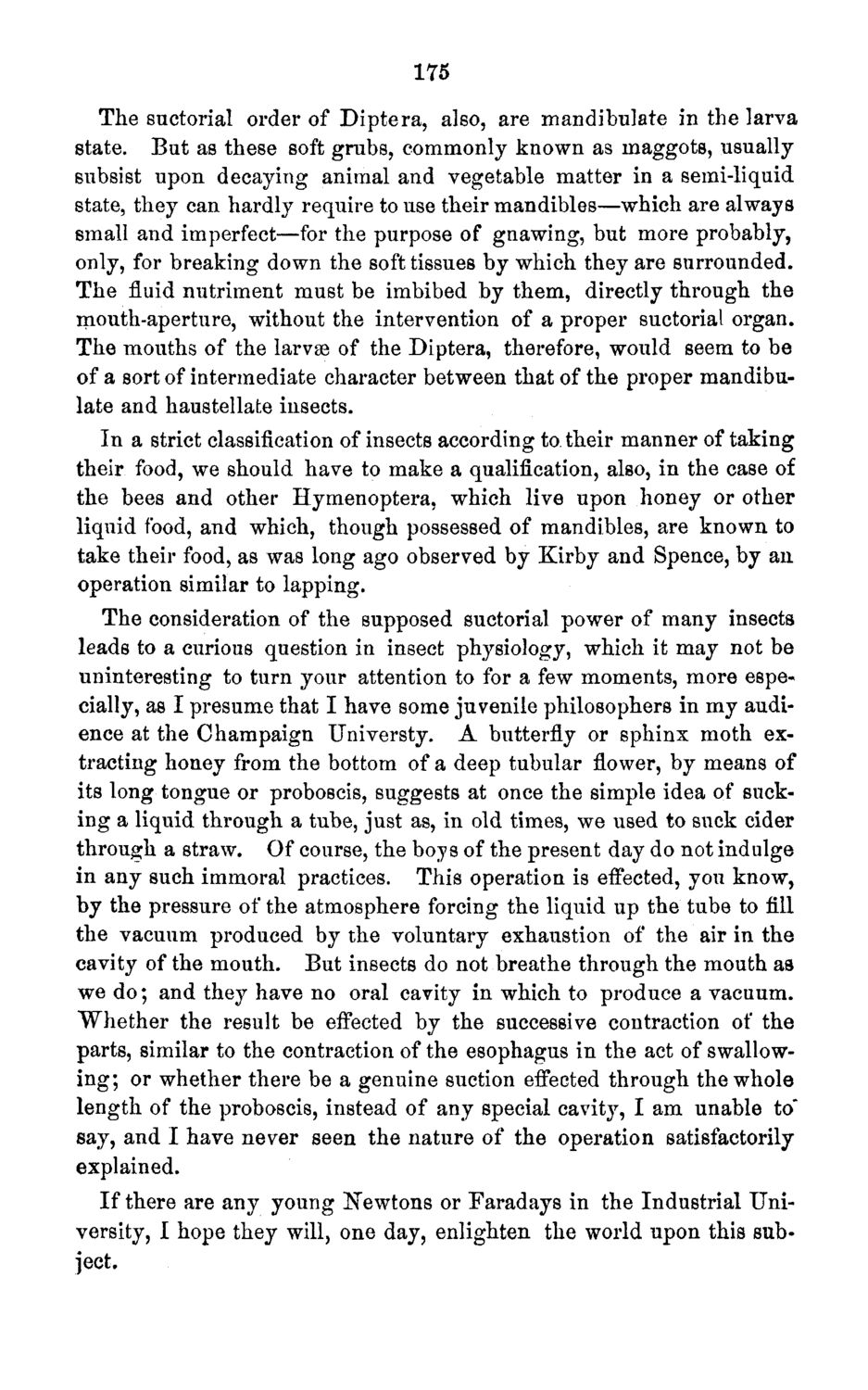| |
| |
Caption: Board of Trustees Minutes - 1871
This is a reduced-resolution page image for fast online browsing.

EXTRACTED TEXT FROM PAGE:
175 The suctorial order of Diptera, also, are mandibulate in the larva state. But as these soft grubs, commonly known as maggots, usually subsist upon decaying animal and vegetable matter in a semi-liquid, state, they can hardly require to use their mandibles—which are always small and imperfect—for the purpose of gnawing, but more probably, only, for breaking down the soft tissues by which they are surrounded. The fluid nutriment must be imbibed by them, directly through the mouth-aperture, without the intervention of a proper suctorial organ. The mouths of the larvae of the Diptera, therefore, would seem to be of a sort of intermediate character between that of the proper mandibulate and haustellate insects. In a strict classification of insects according to their manner of taking their food, we should have to make a qualification, also, in the case of the bees and other Hymenoptera, which live upon honey or other liquid food, and which, though possessed of mandibles, are known to take their food, as was long ago observed by Kirby and Spence, by an operation similar to lapping. The consideration of the supposed suctorial power of many insects leads to a curious question in insect physiology, which it may not be uninteresting to turn your attention to for a few moments, more especially, as I presume that I have some juvenile philosophers in my audience at the Champaign Universty. A butterfly or sphinx moth extracting honey from the bottom of a deep tubular flower, by means of its long tongue or proboscis, suggests at once the simple idea of sucking a liquid through a tube, just as, in old times, we used to suck cider through a straw. Of course, the boys of the present day do not indulge in any such immoral practices. This operation is effected, you know, by the pressure of the atmosphere forcing the liquid up the tube to fill the vacuum produced by the voluntary exhaustion of the air in the cavity of the mouth. But insects do not breathe through the mouth as we do; and they have no oral cavity in which to produce a vacuum. Whether the result be effected by the successive contraction of the parts, similar to the contraction of the esophagus in the act of swallowing; or whether there be a genuine suction effected through the whole length of the proboscis, instead of any special cavity, I am unable to" say, and I have never seen the nature of the operation satisfactorily explained. If there are any young Newtons or Faradays in the Industrial University, I hope they will, one day, enlighten the world upon this subject.
| |